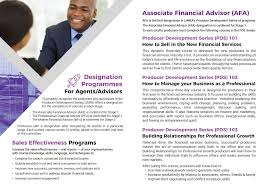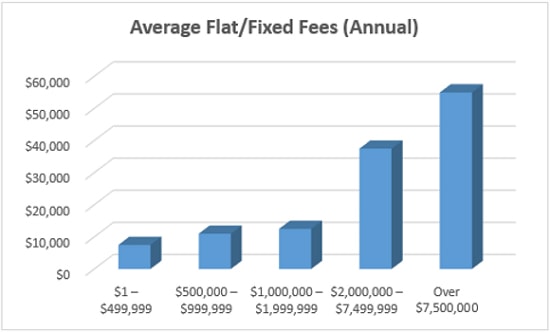
Junior software engineers can have a rewarding job. A lot of companies are searching for these highly-skilled workers. These companies include IBM and Lockheed Martin. This article will cover the job requirements, education requirements, and working environment. After reading it, you'll be ready to start your job search.
Duties of the job
Job duties of a junior software engineer include implementing software solutions and analysing data, but they can also be part of a wider role. Software engineers may work in small and large companies. Others might work in consulting. In any case, software engineers have broad skills that allow them to progress through the career ladder.
Software engineers should be well-versed in all aspects of software development, from design and testing to debugging. They should also have an excellent working knowledge in all aspects of software languages, frameworks, or tools. They should be able to work in a team and multitask. They must also be proficient in using different email systems and databases.

Education Required
In order to become a junior software engineer, you must complete a formal education in computer science. You have a few options for preparing yourself for this career. For a better understanding of what's involved, check out the following list of education requirements for this career.
A bachelor's degree in computer science or a related field is recommended. Solid programming skills are essential for a software engineer. In order to be a software engineer, they must have knowledge of at least one scripting or object-oriented programming language. However, technical skills alone won't help you solve problems.
Salary
The typical salary of a junior engineer in software engineering is comparable to that paid to other engineers working in the field. However, if your current salary is not satisfactory, you have the option to seek out ways to increase. Get advice from recruiters. These professionals can provide valuable insight on the salaries of junior software engineers.
The typical salary of a junior software engineer is USD 60,000 to USD 200,000. You may find a lower or higher salary for junior software engineers in certain cities. The salary range for similar positions in the United States is comparable.

Work environment
Working as a junior software engineer in an IT company typically involves working in an office environment. They may travel to attend training and conferences. They might be required to work extra hours during peak periods. They are usually supported by senior software engineers and other professionals and work in teams. This type of work offers a lot of room for growth, but they must stay up to date on new developments in the field.
An average junior software engineer works eight to nine hours per day. Some companies will require longer hours while others need to be available on-call. Others may require work during the night. Although this is common, it can be difficult for someone still learning to take a career break.
FAQ
Why would a company hire consultants?
A consultant offers expert advice on improving your business performance. Consultants are not here to sell products.
Consultants help companies make better business decisions through sound analysis and suggestions for improvement.
Consultants often work with senior management to help them understand how to succeed.
They also offer leadership training and coaching to ensure that employees are able to perform at their best.
They may be able to advise businesses on ways to cut costs, improve efficiency, and streamline processes.
How does consulting differ from freelancing?
Freelancers are individuals who work for themselves and offer their services to clients. They typically charge hourly rates based on time spent working on a client's project. Consultants often work for companies or agencies that employ them. Their salaries are often paid monthly, or annually.
Because they have control over their work hours and can set their prices, freelancers are more flexible than consultants. Consultants often offer better benefits such as vacation days and retirement plans, health insurance, and vacation days.
Do I need to seek legal advice?
Yes! Yes. Many consultants sign contracts without seeking legal advice. This can lead to issues down the road. What happens if the client cancels the agreement prior to the consultant's completion? Or, what happens if the consultant doesn't meet the deadlines set forth in the contract?
To avoid any potential problems, it is best to consult a lawyer.
What qualifications do you need to be a consultant?
You don't just need to have a MBA, you also need to demonstrate your ability as a business consultant. You must have at least two years' experience working in consulting and/or training within a large company.
It is essential that you have experience working closely with senior management on strategic development projects. This requires you to feel confident presenting ideas to clients, and getting buy-in.
A professional qualification exam, such as the Certified Management Consultant (CMC), of the Chartered Management Institute (CMI), is also required.
Statistics
- So, if you help your clients increase their sales by 33%, then use a word like “revolution” instead of “increase.” (consultingsuccess.com)
- According to statistics from the ONS, the UK has around 300,000 consultants, of which around 63,000 professionals work as management consultants. (consultancy.uk)
- Over 50% of consultants get their first consulting client through a referral from their network. (consultingsuccess.com)
- WHY choose me: Why your ideal client should choose you (ex: 10 years of experience and 6-week program has helped over 20 clients boost their sales by an average of 33% in 6 months). (consultingsuccess.com)
- "From there, I told them my rates were going up 25%, this is the new hourly rate, and every single one of them said 'done, fine.' (nerdwallet.com)
External Links
How To
How do you find a good advisor?
Knowing what you need from your consultant is the first step to finding a qualified consultant. Are you looking for them to improve the performance of your website? You may want them optimizing your site to rank higher for search engines. Or perhaps you just want someone who can tell if there are any issues with your current hosting provider. After you have decided what services you need, it is time to start looking at potential companies. Many consultants claim that they can offer these services. But only a small percentage of them are able to deliver. How do you choose the right consultant? Here are some things to consider when picking a consultant:
-
Get referrals. This is probably one of the best ways to find a consultant. Because you are likely to pay too much, you shouldn't hire someone who you have never heard of. However, you don't want work with someone who has a bad reputation. It's great if you get recommendations from people you trust. Even if you don’t have any referrals, you can still look online for reviews. Find testimonials and case study examples from customers who have used your product.
-
Ask around. Many people are not aware of the benefits of hiring a consultant. They think that since they're currently doing fine, they don't need to make changes. This is often not true. Even if you have great results right now you probably haven't been keeping pace with new technologies or trends. Your business could be missing out if it relies on outdated methods. It's always worth asking for referrals to find good consultants.
-
Be sure to check their credentials. You need to verify their qualifications when you are searching for a consultant. You must ensure they have the necessary skills and qualifications to carry out the tasks.
-
Find out about the types of projects they specialize. This is false. Some areas require specific education or training. You wouldn't hire someone who can build a WordPress theme if they aren't experts in Drupal. The same applies to programming languages, graphic design and other areas. Ask them what types of projects they are most familiar with.
-
You should know their prices. As we said, you don't want to pay too much for a consultant. You don't necessarily want to pay too low, but you shouldn't either. There are many types of consultants. While some consultants charge an hourly rate, others bill per project. Knowing exactly what you're paying upfront will save you money down the road.
-
Know what they offer. Are they available for free consultations Will they give you advice on how to set up your own system? Is there a guarantee that your site will rank higher after working with them? You can cancel the consultation without penalty if your opinion is not what you wanted.
-
Also, ask if discounts are available for multiple months and years. Many consultants offer discounts for longer periods. Although you do not have to commit to a year, it is possible to take advantage of any offers they may offer.